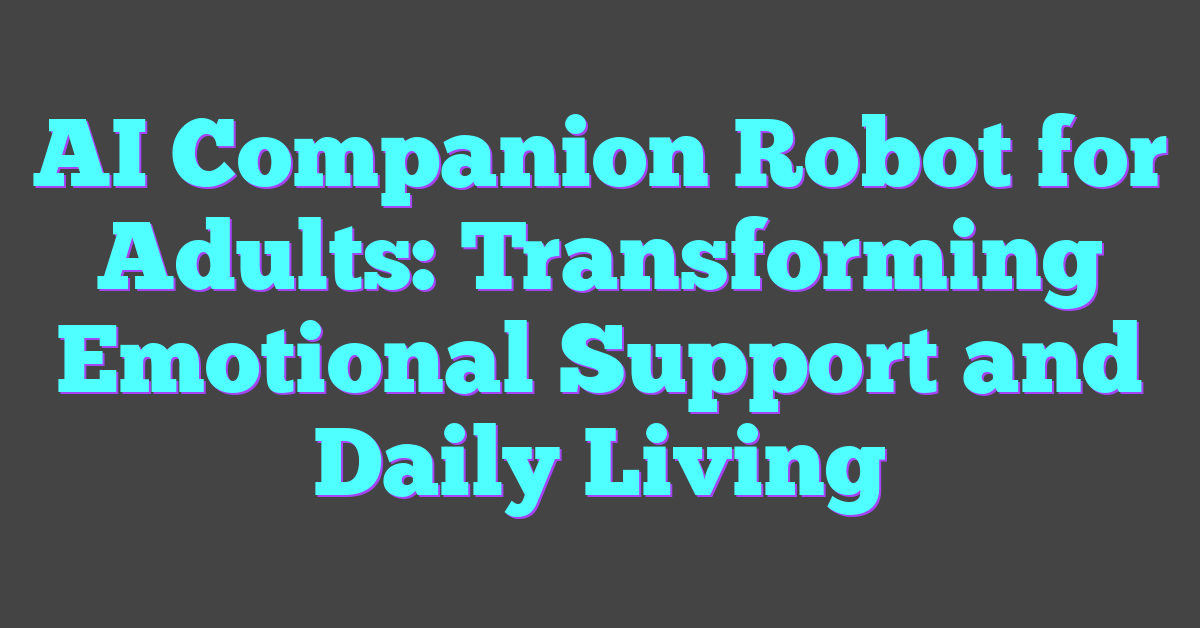Artificial Intelligence (AI) is transforming industries and reshaping the future, making it one of the most sought-after fields today. With the increasing demand for AI expertise, many are turning to online degrees to gain the necessary skills and knowledge. These programs offer flexibility, allowing learners to balance their studies with other commitments.
Choosing the best AI online degree can be overwhelming with so many options available. This article will guide you through some of the top programs, highlighting their unique features and what makes them stand out. Whether you’re a working professional or a recent graduate, there’s an online AI degree that fits your needs.
Understanding Online AI Degrees
As industries increasingly seek AI expertise, online degrees in AI provide a flexible path to acquiring this in-demand skill set. These degrees cater to both aspiring professionals and those looking to advance their careers.

What Is an AI Degree?
An AI degree delves into the principles and applications of artificial intelligence. It covers core topics such as machine learning, neural networks, natural language processing, and robotics. Students learn to design, develop, and implement AI systems that solve real-world problems. Typical coursework includes:
- Machine Learning: Supervised, unsupervised, and reinforcement learning techniques.
- Neural Networks: Deep learning architectures and cognitive models.
- Natural Language Processing (NLP): Speech recognition, text analysis, and language translation.
- Robotics: Autonomous systems and control mechanisms.
Why Pursue an AI Degree Online?
Flexibility makes online AI degrees appealing, especially for working professionals. These programs offer several advantages:
- Convenience: Access coursework anytime, anywhere, eliminating the need for relocation or fixed schedules.
- Affordability: Often lower tuition fees compared to on-campus programs, plus savings on commuting and housing.
- Networking Opportunities: Virtual classrooms connect students with peers and faculty globally, fostering diverse professional networks.
- Cutting-Edge Curriculum: Access to the latest tools and technologies ensures up-to-date education aligned with industry standards.
Online AI degrees allow learners to balance other commitments while gaining expertise in a rapidly evolving field.
Key Features of Top AI Online Degrees
Top AI online degrees must offer comprehensive and specialized features to stay competitive. Important aspects include diverse curricula and well-recognized accreditation.
Curriculum and Specializations
Leading AI online degrees provide diverse curricula covering machine learning, neural networks, and natural language processing. Programs often include:
- Core Courses: Courses on fundamental AI concepts like data science and natural language processing.
- Elective Courses: Options such as robotics and deep learning to let students specialize.
- Project-Based Learning: Real-world projects to apply AI knowledge practically.
Specializations align with students’ goals and industry demands. Examples include AI for healthcare and AI in robotics.
Accreditation and Recognition
Accreditation is crucial for AI degrees to ensure quality education. Recognized accreditation bodies such as ABET and regional accrediting agencies validate program standards.
Good recognition from industry leaders and academic circles guarantees AI programs meet workforce needs. Partnerships with tech companies often signal strong program reputations. Examples of recognized programs include those from Stanford University and MIT.
Choosing accredited and well-regarded AI programs helps in career advancement, offering credible qualifications trusted by employers.
Choosing the Right AI Online Program
Choosing the right AI online program can significantly impact your career trajectory. When selecting, consider various factors, cost implications, and available financial aid options.
Factors to Consider
Several critical factors can help determine the best AI online program:
- Curriculum: Comprehensive programs should cover fundamental and advanced topics, such as machine learning, neural networks, and natural language processing. Check for project-based learning and specialization options, like AI for healthcare.
- Accreditation: Ensure the program has reputable accreditation, such as from ABET, which adds credibility to your degree. Accredited programs often maintain high educational standards.
- Flexibility: Look for programs offering flexible learning schedules, particularly if balancing work or other commitments. Online programs should accommodate asynchronous learning, providing convenience without sacrificing quality.
- Industry Partnerships: Programs partnered with industry leaders like Stanford University or MIT frequently provide networking opportunities, internships, and access to cutting-edge AI research.
- Faculty Expertise: Investigate the qualifications and expertise of the faculty. Top programs often have faculty actively engaged in AI research, contributing valuable industry insights.
- Support Services: Quality programs offer robust student support services, including academic advising, career services, and access to online learning resources.
Cost and Financial Aid Options
Understanding the costs and financial aid options is crucial:
- Tuition Fees: Tuition can vary widely among programs, from a few thousand to tens of thousands of dollars. Compare costs based on what each program offers in return.
- Scholarships and Grants: Research available scholarships and grants specifically for AI or computer science degrees. These can significantly reduce financial burdens.
- Employer Sponsorships: Some employers offer financial assistance for continuing education. Check with your employer to see if they support advancing your AI skills.
- Student Loans: Federal and private student loans can cover tuition and other expenses. Understand the terms and conditions before committing.
- Payment Plans: Many institutions offer flexible payment plans that allow spreading the cost over the duration of the program.
Choosing the right AI online program involves carefully weighing these factors and financial options to make an informed decision that aligns with career goals and personal circumstances.
Benefits of Obtaining an AI Degree Online
Online AI degrees offer several advantages, making them a compelling choice for many students. Key benefits include flexibility, convenience, and expanded career opportunities post-graduation.
Flexibility and Convenience
Online programs provide unparalleled flexibility for students. They can fit study schedules around work, family, and other commitments. This flexibility is particularly beneficial for working professionals looking to upskill.
Convenience is another significant benefit. Students can access course materials, lectures, and assignments from anywhere with an internet connection. There’s no need to relocate or commute to a physical campus. This convenience allows for a more personalized learning experience tailored to individual needs and lifestyles.
Career Opportunities Post-Graduation
An AI online degree can open doors to a wide array of career opportunities. Graduates can pursue roles such as machine learning engineer, data scientist, and AI specialist. Each role varies in focus, but all are in high demand as businesses integrate AI technologies.
Many industry leaders prioritize candidates with AI expertise. Institutions often partner with companies to provide networking opportunities, internships, and real-world projects. These connections can significantly enhance job prospects and career growth.
Access to Specialized Knowledge
Online AI degrees often allow students to specialize in niche areas. Specializations might include natural language processing, computer vision, or AI for healthcare. These focused areas of study can give graduates a competitive edge in the job market, making them highly sought after for specific roles.
Adding to this, the curriculum in online AI degrees is frequently updated. Students get to learn the latest advancements in AI, ensuring their knowledge remains relevant and cutting-edge.
Cost-Effective Education
Online degrees can be more affordable than traditional on-campus programs. They typically have lower tuition fees, and students save on commuting and housing costs. Financial aid options such as scholarships, grants, and student loans are often available to help offset expenses.
Employer sponsorships are also a viable option. Many companies are willing to invest in their employees’ education to keep up with technological advancements.
Networking and Support Systems
Although online, these programs often feature strong networking platforms. Virtual meetups, forums, and group projects foster connections among students. Additionally, institutions provide robust support systems including academic advising, career services, and mental health resources.
Faculty engagement remains high in online settings, with professors available through virtual office hours, emails, and discussion boards. This level of support ensures students aren’t navigating their education alone.
The benefits of obtaining an AI degree online are manifold. Flexibility and convenience, coupled with vast career opportunities post-graduation, make it an attractive option for aspiring AI professionals.
Conclusion
Choosing an online AI degree can be a game-changer for anyone looking to break into the AI field. With the convenience of flexible learning schedules and the benefit of up-to-date, specialized curricula, these programs offer a unique blend of quality education and practical experience. The added perks of financial aid options and networking opportunities make it even more appealing. Graduates are well-prepared for high-demand roles like machine learning engineer and data scientist, equipped with the skills and knowledge needed to thrive in today’s competitive job market. Investing in an online AI degree is a smart move for a promising future.
Frequently Asked Questions
What are the benefits of pursuing an online AI degree?
An online AI degree offers flexibility, convenience, affordability, and the ability to access up-to-date curricula. It allows students to balance studies with other commitments, leads to expanded career opportunities, and provides specialized knowledge in areas like AI for healthcare and robotics.
What topics are typically covered in an online AI degree program?
Online AI degree programs usually cover machine learning, neural networks, and natural language processing. They also often include project-based learning and specializations in fields like healthcare, robotics, and more.
How can I ensure the quality of an online AI degree program?
Look for programs accredited by recognized bodies like ABET and those that have partnerships with industry leaders. Accreditation and partnerships ensure program quality and recognition in the job market.
What career opportunities are available after completing an AI degree online?
Graduates of online AI degree programs can pursue roles such as machine learning engineer, data scientist, AI specialist, and more. These roles are increasingly in demand across various industries.
Are there financial aid options available for online AI degree programs?
Yes, many online AI degree programs offer financial aid options, including scholarships and employer sponsorships, to help offset the costs of tuition and fees.
How does an online AI degree provide a personalized learning experience?
Online AI degree programs often provide personalized learning experiences through adaptive learning technologies, diverse learning materials, and individualized support from faculty. This flexibility accommodates different learning styles and paces.
What kind of support systems are in place for online AI degree students?
Online AI degree programs typically offer various support systems, including academic advising, peer networking opportunities, technical support, and faculty engagement to ensure a comprehensive and supportive educational experience.




